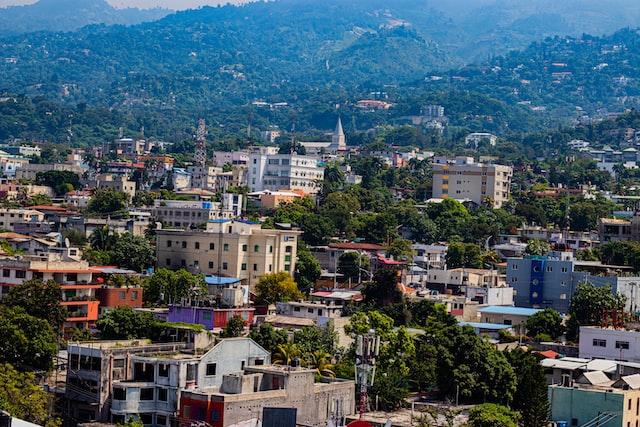I had not planned it to happen this way, that my 300th day of learning Haitian Creole would fall on my birthday. And yet here we are.
Way back in March of 2022 (goodness, can I even see back in time that far?) I was challenged by a friend’s response to my ignorance about his language and his nation: why not learn Haitian Creole and understand how it is different from French and how it is uniquely centered in the lives of the people of Haiti? He didn’t say it that way, of course—he was more polite than that! But I got the message that in friendship he wanted me to know more.
So I began with Duolingo, acquired some instructors, and joined various groups on various media platforms where learning and speaking Haitian Creole was centered. And I’ve read many books and listened to many YouTube videos and tried to understand more about this fascinating language, born of need and privation and struggle, created by hammering out a common vocabulary and grammar that is a mix of European, Indigenous, and African languages, all on a small island in the Caribbean that was also a center of Black struggle and Black liberation.
I knew nothing of this when I started. I knew that there was an island of Haiti and that it was often in the news due to its many travails. I knew a little of its recent miseries after the tramblemante (earthquake) of 2010 and the incompetent “help” provided by the “developed” nations.
But that was about it.
I’m genuinely surprised by what I’ve learned as I’ve worked to acquire this language. You cannot understand Haitian Creole if you do not know and understand Haiti. Not just the way that words and grammar are shaped by culture, of course, but also what that culture is—how seeing the world through the lens of pride and fierceness to be one’s own people away from the control of the traditionally dominant nations can affect the construction of a common tongue.
You see it through the many layers of cultural behaviors when one Haitian interacts with another—there are the usual transfers of ideas or goods and services, of course, but underneath that is a shared identity and a desire to connect through acknowledgment of the other’s presence. One example I see is the necessity of the greeting. You generally don’t just walk up to someone and start talking, and just saying “Hello” isn’t enough. It’s polite and expected that you begin a conversation, even with friends and family, by greeting them about the day and inquiring about their state of being. Good morning. How are you today? What’s happening? You good?
It might be a small thing and a social custom that is not even seen—but those social mores are actually expressions of something about the society. In comparison to my own experiences in the States and in Europe where a greeting is a formality and there’s no expectation of the genuine expression of one’s self, the greeting in Haitian Creole is a connection. How are you doing? Well, I’m not too bad. I’m in good form. I’m basically okay. I’m here, aren’t I? There are multiple layers of meaning before a conversation starts.
I can try to read back into why, and I’ve read various explanations, and they seem valid—but I’m an outsider trusting people’s stories. But in general, what I read leads me to understand this as coming from the foundations of Haiti as a colony of Spain and then France that was ruthlessly brutal to the human machinery imported from Africa as cheap, easily discarded labor. (The number of human beings destroyed by the slave trade is astonishing to the point of bewilderment: how can I grasp the millions of humans whose lives were treated like leaves of a tree to be swept up and buried when they fall?) And those Africans, pressed together into groups of strangers with no common language (a deliberate choice by the enslavers to keep the enslaved from building community and resisting) instead took from the colonizers a vocabulary and grafted it onto a common vocabulary from their mother tongues. And with that common language among people from various locations in West Africa they also built a common identity forged in enslavement and torture and murder: Haitian. People unrelated to each other as strongly as individual nations in Europe differ from one another but thrown into the pile of “African” turned that into a fierce pride of human durability, strength, and self-liberation.
Haiti is called the first Black republic in the New World, and what is unusual about it is that it was not a nation established by colonizers (England, Sweden, France, the Netherlands, Spain, and so on) but a nation established by the kidnapped and stolen population. Those who were treated as cheap and expendable labor found themselves and created their own nation, throwing France—their oppressors and enslavers—out of their own lands, setting up their own nation, a Black republic, differing in origin from all the other nations in the New World at that time.
That pride and sense of origin is there in every exchange. It’s hard to see from the outside because not only is there a language barrier, but there’s also a lack of education and understanding.
That’s what you learn when you learn Haitian Creole. It’s more than just a “language.” It’s a history and a culture and a sense of being.
And that’s what I’ve learned in 300 days. Can’t wait to see what the next part of the journey brings!

